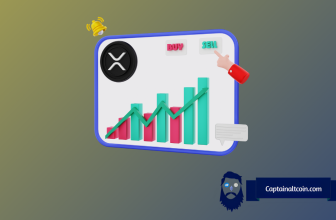
If you’re thinking about beginning to trade in stocks, and you’d like to learn a little about the subject, this quick guide is the perfect starting point.
Trading stocks is a professional endeavour for some, a hobby for others. If you’re hoping to make a little money on the stock market and you’ve never bought or sold stocks before, it can be difficult to know where to begin. Read on and your questions will be answered.
First of all, what exactly is a stock?
The terms ‘stocks’ and ‘shares’ are used interchangeably. Whichever term you use, a stock or a share, is a portion of a company, albeit a very small one. When you buy stocks, you are buying units of a business. Your hope is that the business will enjoy a successful future and that the small part of it that you now own will increase in value.
When a company is floated on the stock market, it is opening itself up to vast potential for capital investment. The money raised can be invested back into the business, with the ambition of increasing the fortunes of everyone involved. If you’ve bought stocks, you’ve bought a share in an organisation’s future, whether that leads to success or failure. So, how do you make money? Your stocks may increase in value over time, allowing you to sell them at a profit. Alternatively, the company may pay dividends. Dividends are a little like interest on a savings account and they might be paid like interest on a regular basis, or as a one-off lump sum.
To actually buy your shares is quite simple and there are a few ways to do it. Simply go online and find a share dealing platform to get started right away. You can directly buy shares listed on the stock exchange or on foreign exchanges. For popular and big name shares like Apple, Microsoft or Coca-Cola, head to the London Stock Exchange. For more unusual, smaller investment choices, try the Alternative Investment Market (AIM).
If you’re now wondering which businesses to buy stocks in, you’re not alone. The choice of which companies to invest in is what navigating the stock market is all about. One common misconception around buying stocks is that you must sit down and examine the performance of individual companies going back years or even decades. In fact, for the new investor, with only a modest amount of cash, wondering which shares to buy, there’s an easier option – exchange-traded funds. By pooling funds from multiple investors, these allow you to really diversify the stocks you buy, spreading the risk across a number of well-known or relatively obscure businesses.
It may be that, without really knowing it, you’re already playing the stock market. Individual savings accounts (ISAs), some pensions and many other savings and investments products are linked to the stock market. So, while you may not be directly choosing companies to invest in, someone out there, or perhaps a computer algorithm will be doing it on your behalf.
Buying and selling stocks is a type of gambling. While major success stories or tales of fortunes lost might gain more traction in the media, the more common journey through the stock market is a more measured journey with gentle ups and downs, and modest profit.






